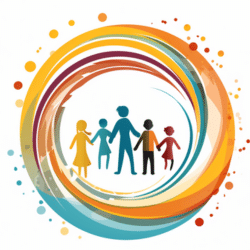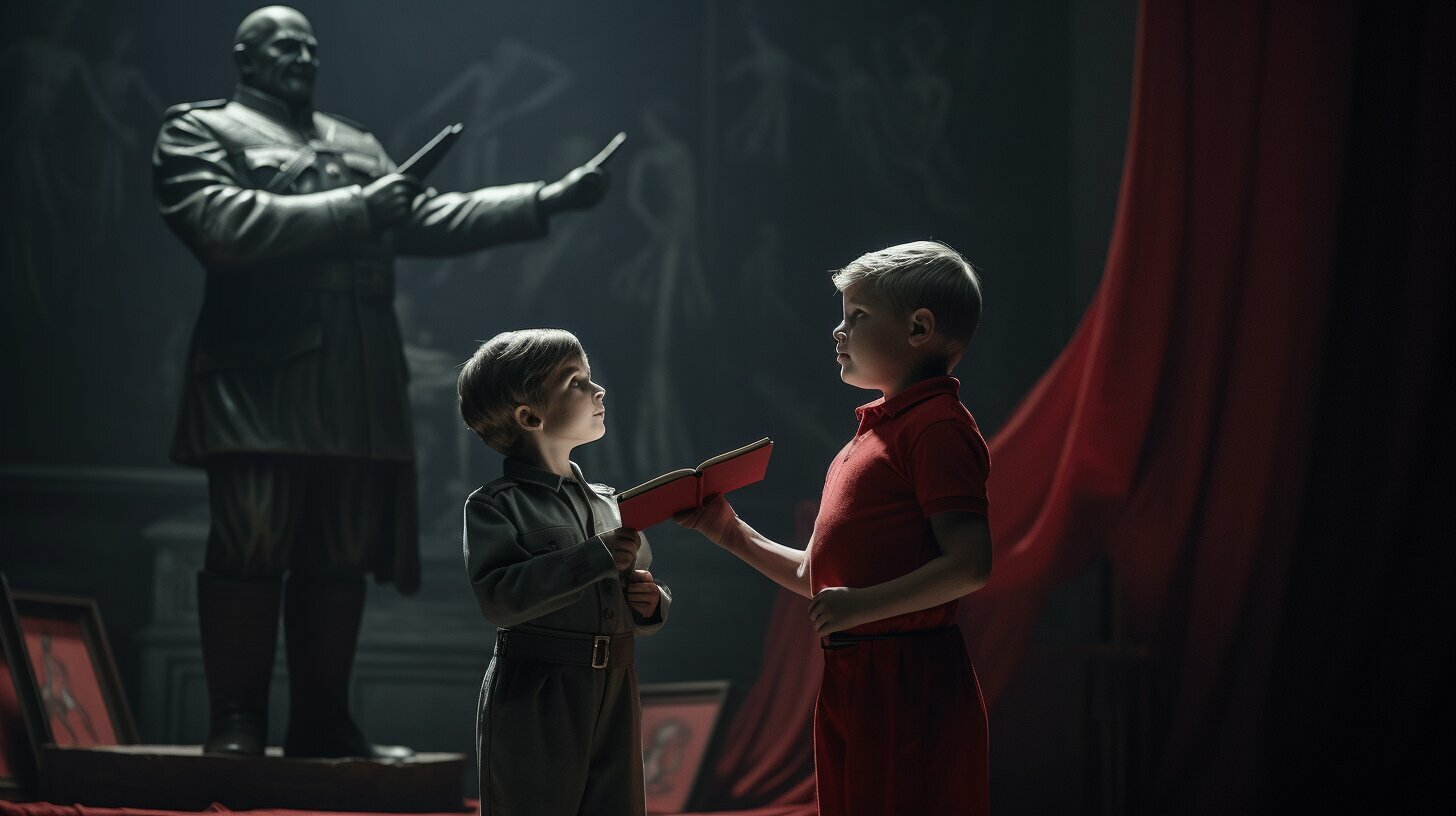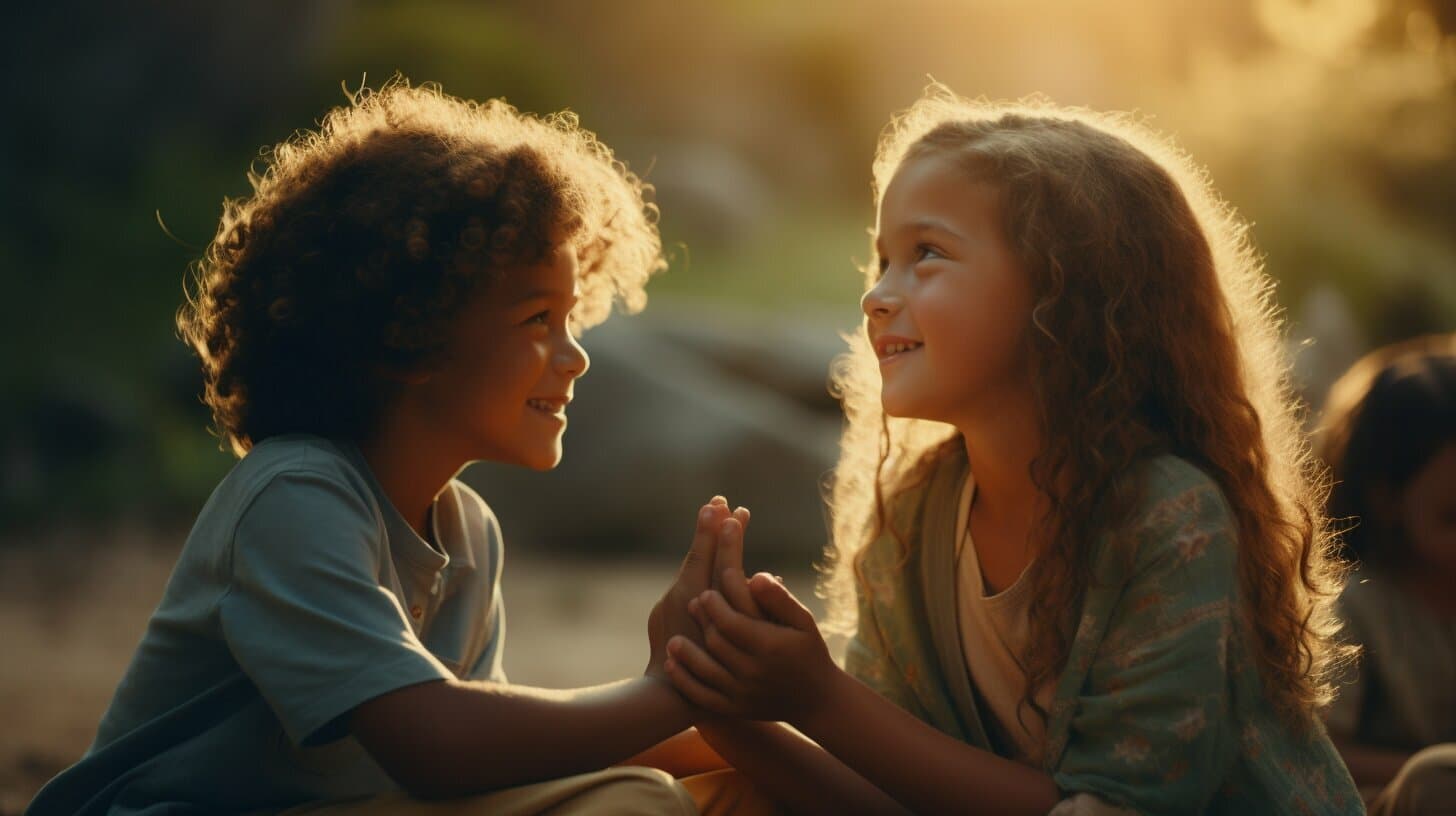As a parent or guardian, you may find yourself wondering how to explain complex ideas like democracy to a child. It can be challenging to know where to start and how to make the concept understandable and relatable for young minds. In this article, we will guide you through the fundamental principles of democracy and provide tips on how to explain it to your child in a way they can understand.
Key Takeaways
- Democracy can be simplified by breaking down its basic principles into understandable concepts
- Explaining the importance of equal rights and participation is crucial in teaching democracy to children
- Engaging in democracy can be fostered through participation in activities such as mock elections and youth organizations
What is Democracy?
Democracy is a type of government where people can vote to choose their leaders and have a say in how their country is run. It means that everyone has equal rights and can participate in decision-making no matter their age, gender, race, or social status.
There are some basic principles that define a democracy. These include:
| Principle | Description |
|---|---|
| Voting | People participate directly or indirectly in elections to choose leaders and policies. |
| Freedom of speech | People can express their opinions and ideas without fear of punishment. |
| Rule of law | Everyone, including the government, is subject to the law and must follow it. |
Democracy is important because it allows people to have a say in how their government operates. It ensures that everyone’s voice is heard and that decisions are made in the best interests of the majority. It also helps to protect individual rights and freedoms, ensuring that everyone is treated fairly and equally.
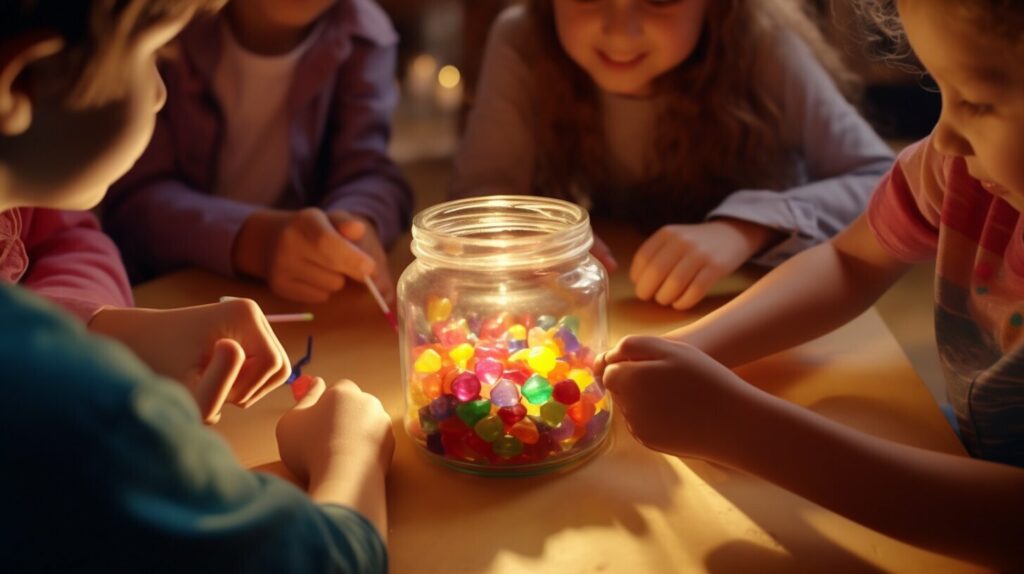
By understanding democracy, you can become an informed citizen and actively participate in decision-making. It also helps to build a fair and just society where everyone has a chance to succeed.
Basic Elements of Democracy
Democracy can be broken down into several basic elements that work together to ensure a fair and just society for all. These elements are:
| Voting | One of the most important aspects of democracy is the right to vote. This means that every individual has a say in who gets elected to make decisions on their behalf. |
|---|---|
| Freedom of Speech | In a democratic society, individuals have the right to express their opinions and ideas without fear of punishment or censorship. This allows for open and honest discussions, leading to better decisions for the whole community. |
| Rule of Law | Everyone, regardless of their position or status, must obey the laws that are set in place. This ensures that there is no one above the law and that justice is served fairly to all. |
| Equality and Inclusion | Democracy is built on the principle that every individual has equal rights and opportunities, regardless of their race, gender, religion, or background. This means that everyone has a chance to participate and contribute to their community. |
Teaching these basic elements of democracy to children can help them understand the importance of democracy and how it works in their everyday lives. By instilling these values in them, we can help build a future generation that values equality, justice, and fairness.

Government and Democracy
Now that you understand what democracy is, let’s look at how it’s related to government. In a democratic society, citizens have the power to choose their leaders and make decisions about their communities.
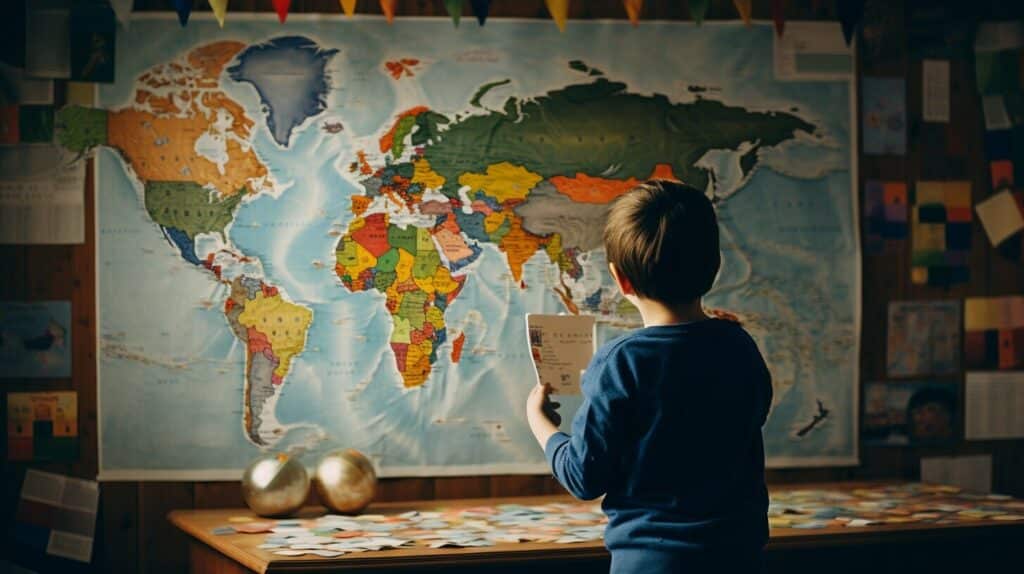
The government is responsible for carrying out the wishes of the people. They create and enforce laws, provide important services like education and healthcare, and protect the country from threats.
However, in a democracy, the government is accountable to the people. This means that citizens have a say in how their government operates and can hold their leaders accountable if they don’t follow through on their promises.
For example, in the United States, citizens vote for their leaders in national and local elections. They can also contact their elected officials and voice their concerns about issues that affect them.
Remember, democracy is all about giving power to the people. This means that each person’s voice and vote is important, no matter how big or small they may seem.
Different Types of Democracy
While the basic principles of democracy remain the same, there are different ways democracy can be practiced. Two of the most common types of democracy are direct democracy and representative democracy.
| Direct Democracy | Representative Democracy |
|---|---|
| In a direct democracy, citizens directly participate in decision-making processes, such as through voting on laws and policies. | In a representative democracy, citizens elect representatives to make decisions on their behalf, such as members of parliament or Congress. |
| Direct democracy can be difficult to implement on a large scale, as it requires constant participation and can be time-consuming. | Representative democracy is easier to implement on a large scale, but it can also lead to issues with accountability and representation if the elected officials do not accurately represent the wishes of their constituents. |
It is important to note that there are variations and combinations of these types of democracy in practice around the world. Understanding the different types of democracy can help children appreciate the complexity of democratic processes and the various ways they can be implemented.

Why Is Democracy Important?
Democracy is important because it ensures that everyone has a say in how their country is run. It means that you have the right to vote for the people who will make decisions on your behalf. It is a fair system that gives everyone an equal chance to have their voice heard.
Democracy also protects individual rights, such as freedom of speech and the right to a fair trial. It ensures that people are not discriminated against because of their race, gender, or religion. It allows people to live in a society that is just and equal.
Without democracy, there is a risk of dictatorship, where one person or group has all the power and makes decisions for everyone else. This can be dangerous because it can lead to corruption, oppression, and human rights abuses. Democracy prevents this by giving power to the people and ensuring that leaders are held accountable for their decisions.
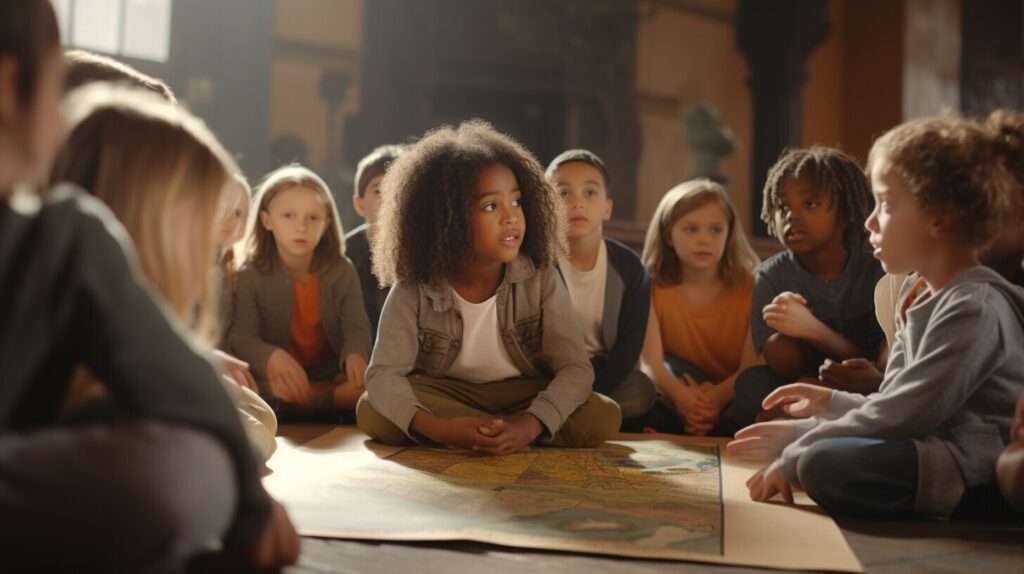
Teaching children about democracy is important because it helps them understand the world around them and the power they have to make a difference. It encourages them to participate in their communities and engage in civic activities. By teaching children about democracy, we are shaping the future leaders of our society and ensuring that they are equipped to make important decisions that affect us all.
Democracy in Action: Example Scenarios
Now that you have a basic understanding of what democracy is, let’s explore some examples of how it works in everyday life. Imagine your class is trying to decide on a new game to play at recess. Instead of the teacher choosing, you get to vote on which game to play. The game with the most votes wins, and everyone gets to have fun playing it. This is a simple example of democracy in action, where everyone gets a say in the decision-making process.
Another scenario where democracy comes into play is choosing a class representative. Instead of the teacher deciding who should be the representative, everyone in the class gets to nominate someone they believe would do a good job. Then, the class votes on who they want to represent them. This way, everyone’s voice is heard and the class can collectively decide who they want to lead them.
These may seem like small examples, but they demonstrate the fundamental principles of democracy: that everyone has an equal say and everyone’s opinion is valued. By participating in these scenarios, you are learning how to be an active and engaged member of a democratic society.
Next, we will explore some real-life examples of how democracy has made a difference in the world.

Famous Democracy Heroes
Learning about individuals who have fought for democracy can inspire and deepen your child’s understanding of the concept. Here are a few famous democracy heroes to introduce to your child:
| Name | Country | Contribution |
|---|---|---|
| Abraham Lincoln | United States | As the 16th president of the United States, Lincoln led the country through its Civil War and helped to end slavery with the Emancipation Proclamation. |
| Nelson Mandela | South Africa | Mandela was a South African anti-apartheid revolutionary who became the country’s first black president after being imprisoned for 27 years for his beliefs. |
| Martin Luther King Jr. | United States | King was an American Baptist minister and activist who became the most visible spokesperson and leader in the civil rights movement from 1954 until his assassination in 1968. |
| Mahatma Gandhi | India | Gandhi was an Indian independence activist who employed nonviolent civil disobedience to lead India to independence from British rule in the mid-20th century. |
These individuals symbolize the power and impact of democracy, and their legacies continue to inspire people around the world.
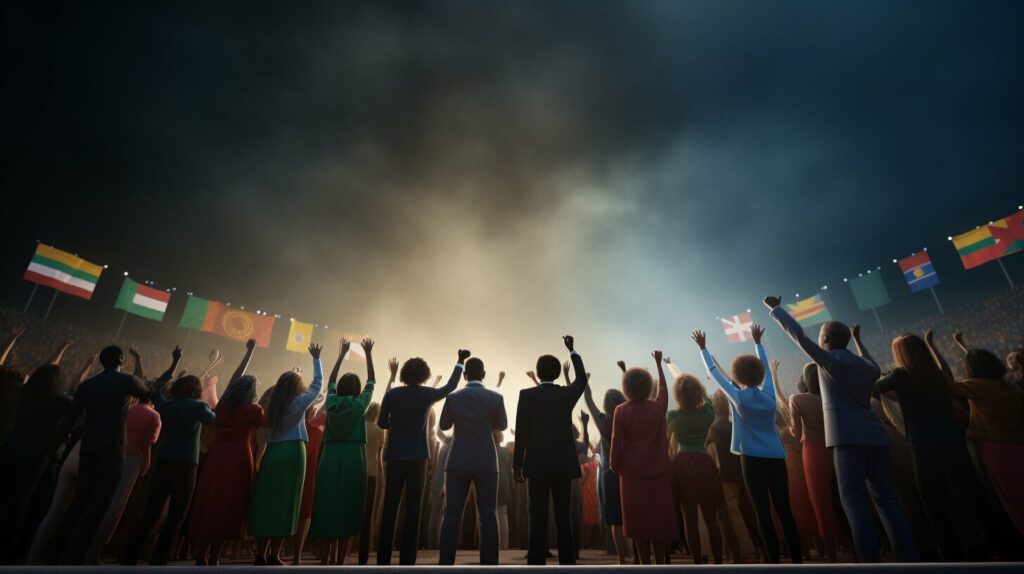
Celebrating Democracy
As a society, we place great importance on democratic principles and values. One way we celebrate democracy is through national holidays and observances that honor those values and the people who fought for them.
| Holiday/Event | Date |
|---|---|
| Independence Day | July 4 |
| Voter Registration Day | 4th Tuesday of September |
| Constitution Day | September 17 |
| Women’s Equality Day | August 26 |
These holidays and events remind us of the importance of democracy in our lives and our country. They also provide an opportunity to reflect on the progress we have made towards achieving equality and justice for all.
By taking part in these celebrations, we can show our appreciation for the freedoms and rights that democracy provides. It’s also a chance to inspire future generations to continue fighting for these values and to engage in democracy themselves.

Questions and Answers
As you learn more about democracy, you may have some questions. Here are a few common questions and their answers:
-
What does it mean to vote?
Voting is a way for people to make their voices heard. When people vote, they choose who they want to be in charge and make decisions for them. It’s like choosing which game to play with your friends or what book to read next.
-
Why can’t kids vote?
In most places, you have to be 18 years old to vote. This is because people think that by that age, you are old enough to understand what you are voting for and make a responsible decision.
-
What is freedom of speech?
Freedom of speech means that you have the right to say what you think and feel, even if other people don’t agree with you. It’s like being able to tell your parents what you want to do on the weekend, even if they might say no.
-
What is the rule of law?
The rule of law means that everyone in a country has to follow the same set of laws. This is important because it means that everyone is treated fairly and equally, no matter who they are.
-
Why is it important to participate in democracy?
Participating in democracy is important because it allows you to have a say in how your country is run. This means that you can help make decisions that affect you and your family.
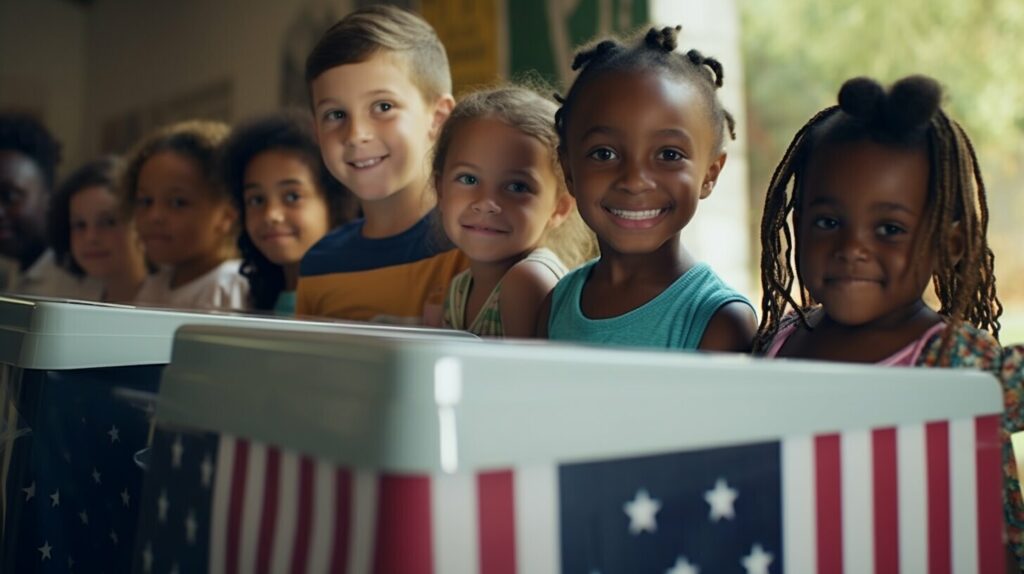
Engaging in Democracy
Now that you understand what democracy is and why it’s important, you may be wondering what you can do to get involved. Here are some ideas:
- Participate in mock elections: Many schools and youth organizations hold mock elections to teach children about the democratic process. See if your school or local community center is hosting one and get involved!
- Join youth organizations: There are many organizations dedicated to promoting democratic values, such as the Junior State of America or the Youth Leadership Council. Consider joining one of these groups to learn more and make a difference.
- Attend town hall meetings: Town hall meetings provide an opportunity to voice your opinions to local officials and get involved in decision-making for your community.
- Stay informed: Keep up-to-date on political issues and news by reading newspapers, watching broadcasts, or following reputable sources online. Stay informed and be an active citizen!
Remember, democracy is not just something that happens every few years during elections. It’s an ongoing process where people can make their voices heard and contribute to positive change in their communities. By engaging in democracy, you can play an active role in shaping the future of your community and country.
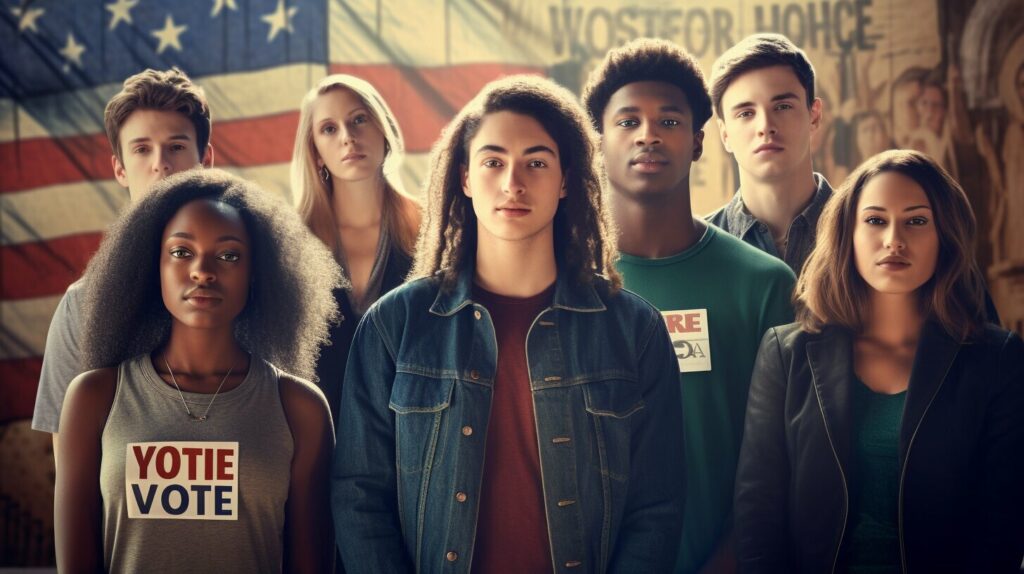
Conclusion
By now, you have learned the fundamentals of democracy and how to simplify the concept for a child. Democracy is a system of government that emphasizes equal rights and participation, with basic elements such as voting, freedom of speech, and the rule of law. It allows citizens to have a say in how their government operates and is essential for a fair and inclusive society. Remember, democracy is not just a concept to learn about – it’s something we can actively engage in. As children, there are many ways to participate, such as joining youth organizations dedicated to promoting democratic values or participating in mock elections. By celebrating democracy and engaging in its principles, we can help build a better future. We hope this article has been helpful in explaining democracy to a child and inspiring a deeper understanding of this important concept. If you have any remaining questions, take a look at our Q&A section, where we provide simple and straightforward answers. Thank you for taking the time to learn about democracy with us!Can You Use the Same Explanation for Popular Sovereignty and Democracy When Explaining to a Child?
When teaching popular sovereignty for kids, it’s essential to differentiate it from democracy. Popular sovereignty means that power rests with the people, allowing them to make decisions and influence the government. On the other hand, democracy refers to a system where citizens elect representatives to make decisions on their behalf. While related, these concepts have distinct characteristics, highlighting the importance of tailored explanations for children.
FAQ
Q: How do I explain democracy to a child?
A: Explaining democracy to a child can be done by emphasizing the idea that democracy is a system where everyone has a say and the power to make decisions. You can use examples like voting for class representative or deciding on rules for games to help them understand.
Q: What is democracy?
A: Democracy is a form of government where the people have the power to make decisions and elect leaders. It is based on the principles of equal rights and participation, ensuring that everyone’s voice is heard and respected.
Q: What are the basic elements of democracy?
A: The basic elements of democracy include voting, freedom of speech, and the rule of law. Voting allows people to choose their leaders and have a say in decision-making. Freedom of speech ensures that everyone can express their opinions, and the rule of law ensures that everyone is treated fairly and equally under the law.
Q: How does government relate to democracy?
A: Government and democracy are closely connected. In a democracy, the government is formed by the people through elections. Democracy allows citizens to have a say in how their government operates and ensures that leaders are accountable to the people.
Q: Why is democracy important?
A: Democracy is important because it promotes fairness, equality, and the protection of individual rights. It allows people to have a voice in decision-making, fosters diversity of opinions, and provides a framework for resolving conflicts peacefully.
Q: How does democracy work in everyday life?
A: Democracy works in everyday life through various scenarios. For example, when choosing a class representative or deciding on playground rules, children can participate in decision-making, vote, and express their opinions, which exemplifies democracy in action.
Q: Who are some famous heroes of democracy?
A: Some famous heroes of democracy include Martin Luther King Jr., Mahatma Gandhi, and Nelson Mandela. These individuals fought for equality, justice, and the rights of all people, leaving a lasting impact on the world.
Q: Why do we celebrate democracy?
A: We celebrate democracy to recognize its importance and value in society. National holidays like Independence Day serve as reminders of the sacrifices made to secure democratic principles and to inspire future generations to uphold and cherish them.
Q: What are some ways children can engage in democracy?
A: Children can engage in democracy by participating in mock elections, joining youth organizations focused on promoting democratic values, and getting involved in community projects that aim to create positive change.
